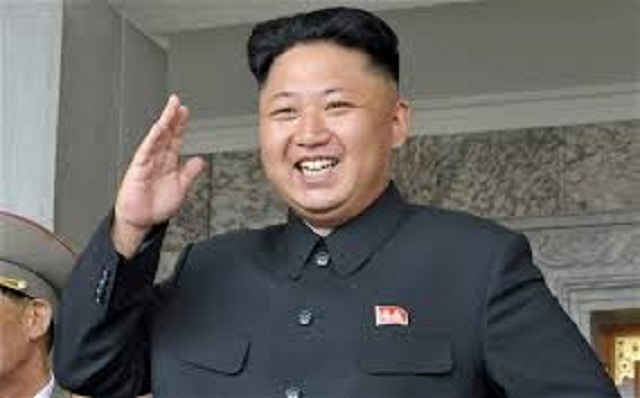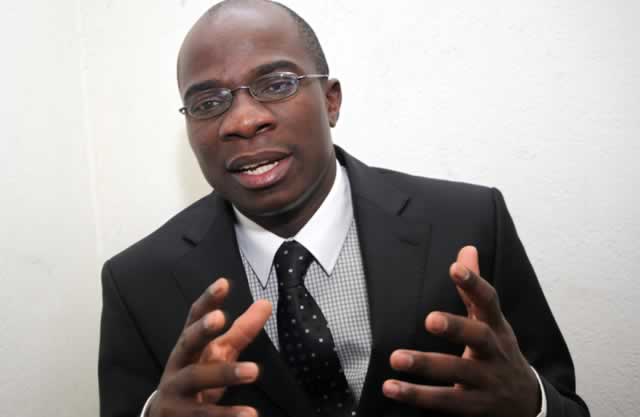North Korea raises alarm with nuclear test announcement

North Korea said it has conducted a hydrogen bomb test in a surprise announcement that sparked regional tension and drew swift condemnation from opponents.
If confirmed, the test would be the fourth time Pyongyang has exploded a nuclear device.
South Korean intelligence officials and several analysts, however, reportedly questioned whether yesterday’s explosion was indeed a full-fledged test of a hydrogen device.
There was no radiation detected at Japanese monitoring posts.
Still, before the announcement was made on state television, South Korea’s meteorological agency said that a 5.1 magnitude earthquake was detected near a known test site in the secretive and isolated state.
South Korea’s presidential office held an emergency meeting and later said the government would take all possible measures to respond to its neighbour and long-time foe’s actions.
“Our government strongly condemns North Korea ignoring repeated warnings from us and the international community and pushing ahead with the fourth nuclear test, which clearly violated the UN resolutions,” Cho Tae-yong, a senior security official at the South Korean presidential office said.
Hydrogen bombs are more sophisticated and can be thousands of times more powerful than atomic bombs.
In an atomic bomb uranium or plutonium is split,causing an explosion.
Instead, a hydrogen bomb encloses an atomic bomb in a layer of a compound called lithium deuteride.
When the atomic bomb is detonated, a secondary – and much larger – explosion results, producing temperatures of up to 400 million C and powerful shockwaves.
Given the technical challenge of building a H-bomb, it’s suggested North Korea may have actually tested a so-called “boosted” bomb.
“Boosted” nuclear weapons use a small amount of lithium deuteride to energise the reaction, making them more powerful, but are not considered full hydrogen explosions.
The UN security council called an emergency meeting for yesterday, diplomats said, as both neighbouring countries and world powers scrambled to issue stern statements.
China’s foreign ministry said it had no advance knowledge of any test and that it firmly opposed Pyongyang’s action.
Ministry spokeswoman Hua Chunying said at a daily news briefing that Beijing – one of North Korea’s only allies – would work with the international community on the denuclearisation of the Korean peninsula.
The US government said it could not confirm a nuclear test but that it would respond appropriately to what it called North Korean “provocations” and that it would continue to protect its allies in the region.
“We’ve consistently made clear that we will not accept [North Korea] as a nuclear state,” a State Department statement said.
Japanese Prime Minister Shinzo Abe called the announcement a threat to his nation’s safety.
Abe told reporters: “We absolutely can’t allow this, and condemn it strongly.”
British Foreign Secretary Philip Hammond said any nuclear test would be a “provocation which I condemn without reservation” and a “grave breach” of UN Security Council resolutions.
The United States Geological Survey (USGS) also detected the quake that South Korea said was 49km from the Punggye-ri site where the North has conducted nuclear tests in the past.
While the USGS put the depth of the earthquake at 10km, the South Korean agency said it was near the surface. The earthquake was detected just after 10AM Seoul time.
Adrian Brown reporting from Beijing, said that North Korea was moving one step nearer to creating a nuclear warhead.
“There will be a good deal of tension once more on the Korean peninsula today. The big question of course is why North Korea has done this now,” he said.
Brown added the test could partly be seen as a defensive response to US-South Korean military exercises, as well as a reaction to UN sanctions the country is under for its nuclear and missile programmes.
“When North Korea last tested a nuclear device in 2013, that was as a direct consequence of the sanctions that had been imposed by the United Nations,” Brown said.
North Korea has so far conducted three nuclear tests – in 2006, 2009 and 2013 – all at Punggye-ri.
The 2013 test registered at 5.1 on the USGS scale.
It is not yet known if Pyongyang has successfully miniaturised a nuclear device small enough to be used as a warhead on a ballistic missile, but the likelihood of the isolated country successfully doing so increases with each test.











Comments